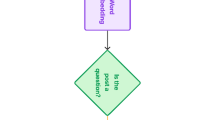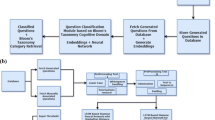Abstract
Discussion forum boards play a crucial role in the interactions among learners and supervisors on e-learning. SWAYAM (Study webs of Active Learning for Young Aspiring Minds) is the first Indian MOOC (Massive open online course) adopted in all higher education institutes, high schools, and vocational schools as a database of their learning materials and discussions. However, being in its initial stage, SWAYAM lacks a well-designed structure in its discussion forums which is necessary for encouraging student engagement in learning.
In this study, we aim to redesign the discussion forum systematically by classifying queries to enhance the learner-supervisor interactions in SWAYAM. In a previous study, FENG [1] developed a model with a convolutional neural network on Rossi’s data set to classify posts in the discussion forum of Coursera which helped to improve the course quality in MOOCs and students’ learning effect. Our study initially adopted a manual classification while in the future we will implement a hybrid approach of machine learning along with the Rule-Based expert system to predict a type of query in the discussion forum of SWAYAM. This proposed system will segregate the comments of the discussion forum using specified indicators and identify repetitive comments. The learners can acquire knowledge frequently from the discussions instead of navigating all the comments separately or retrieving the visual learning materials. On the other hand, subject matter experts (SME) can answer the relevant queries at once after indicator-based segregation of queries and need not to reply to every query distinctly.
Access this chapter
Tax calculation will be finalised at checkout
Purchases are for personal use only
Similar content being viewed by others
References
Feng, L., et al.: Classification of discussion threads in MOOC forums based on deep learning. In: 2nd International Conference on Wireless Communication and Network Engineering, (WCNE 2017). https://doi.org/10.12783/dtcse/wcne2017/19907
SWAYAM. https://swayam.gov.in/about. Accessed 04 Mar 2020
Bloom, B.S.: Taxonomy of Educational Objectives, vol. 1. Cognitive Domain. McKay, New York (1956)
Thomas, M.J.: Learning within incoherent structures: the space of online discussion forums. J. Comput. Assist. Learn. 18, 351–366 (2002). https://doi.org/10.1046/j.0266-4909.2002.03800.x
Hattie, J., Timperley, H.: The power of feedback. Rev. Educ. Res. 77(1), 81–112 (2007). https://doi.org/10.3102/003465430298487
Yang, D., et al.: Exploring the effect of confusion in discussion forums of massive open online courses. In: ACM Conference on Learning (2015). https://doi.org/10.1145/2724660.2724677
Fong, S., Zhuang, Y., Liu, K., Zhou, S.: Classifying forum questions using PCA and machine learning for improving online CQA. In: Berry, M.W., Mohamed, A.H., Wah, Y.B. (eds.) SCDS 2015. CCIS, vol. 545, pp. 13–22. Springer, Singapore (2015). https://doi.org/10.1007/978-981-287-936-3_2
Laurie, P., Ellis, D.T.: Using data mining as a strategy for assessing asynchronous discussion forums. J. Comput. Educ. Arch. 45(1), 141–160 (2005). https://doi.org/10.1016/j.compedu.2004.05.003
Villena, J.: Hybrid approach combining machine learning and a rule-based expert system for text categorization. In: Artificial Intelligence Research Society Conference (2011). https://aaai.org/ocs/index.php/FLAIRS/FLAIRS11/paper/view/2532
Rantanen, A.: Classifying online corporate reputation with machine learning: a study in the banking domain, emerald insight (2019). https://doi.org/10.1108/intr-07-2018-0318
Author information
Authors and Affiliations
Corresponding authors
Editor information
Editors and Affiliations
Rights and permissions
Copyright information
© 2020 Springer Nature Switzerland AG
About this paper
Cite this paper
Neha, Kim, E. (2020). Designing Discussion Forum in SWAYAM for Effective Interactions Among Learners and Supervisors. In: Stephanidis, C., Antona, M., Ntoa, S. (eds) HCI International 2020 – Late Breaking Posters. HCII 2020. Communications in Computer and Information Science, vol 1294. Springer, Cham. https://doi.org/10.1007/978-3-030-60703-6_38
Download citation
DOI: https://doi.org/10.1007/978-3-030-60703-6_38
Published:
Publisher Name: Springer, Cham
Print ISBN: 978-3-030-60702-9
Online ISBN: 978-3-030-60703-6
eBook Packages: Computer ScienceComputer Science (R0)




